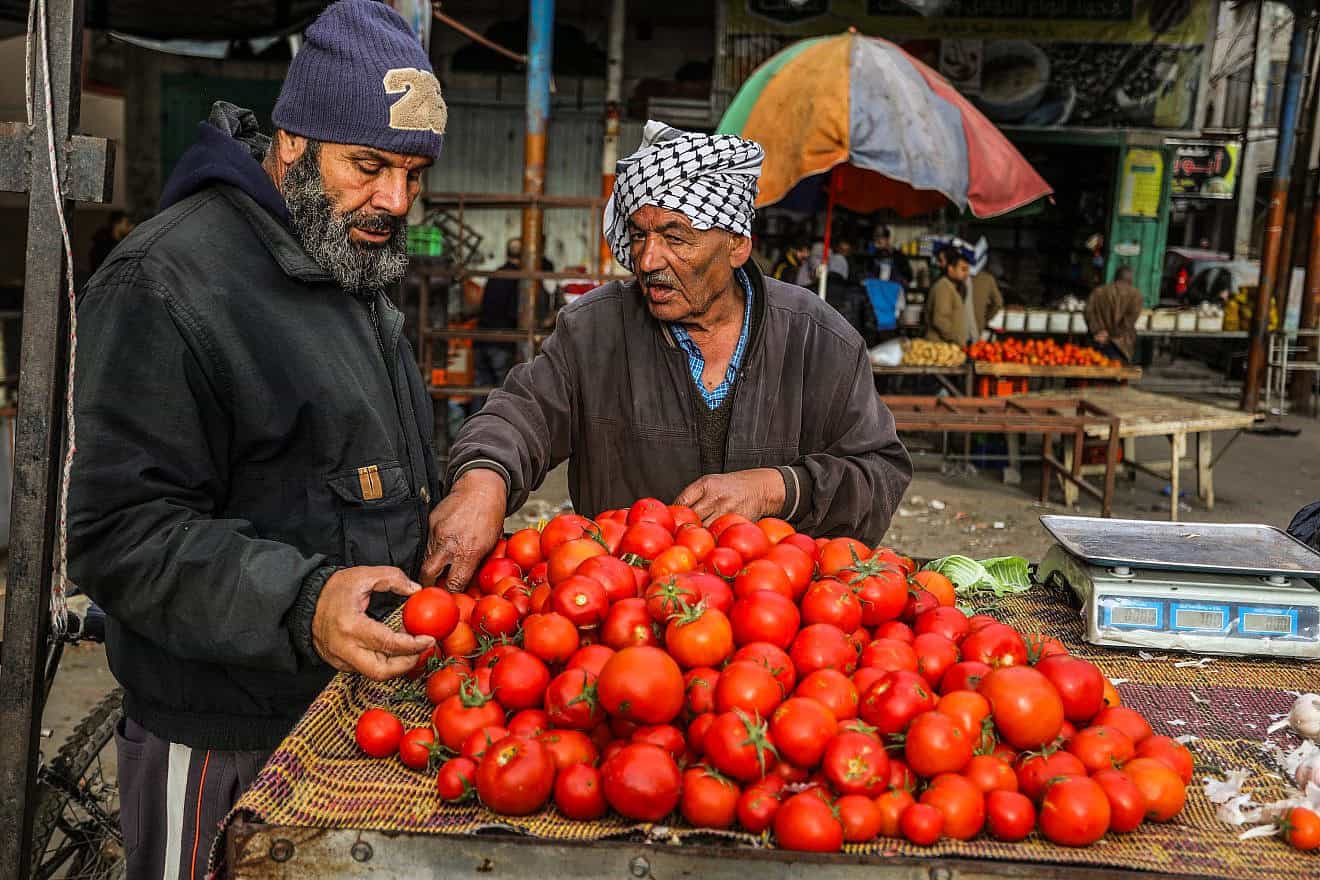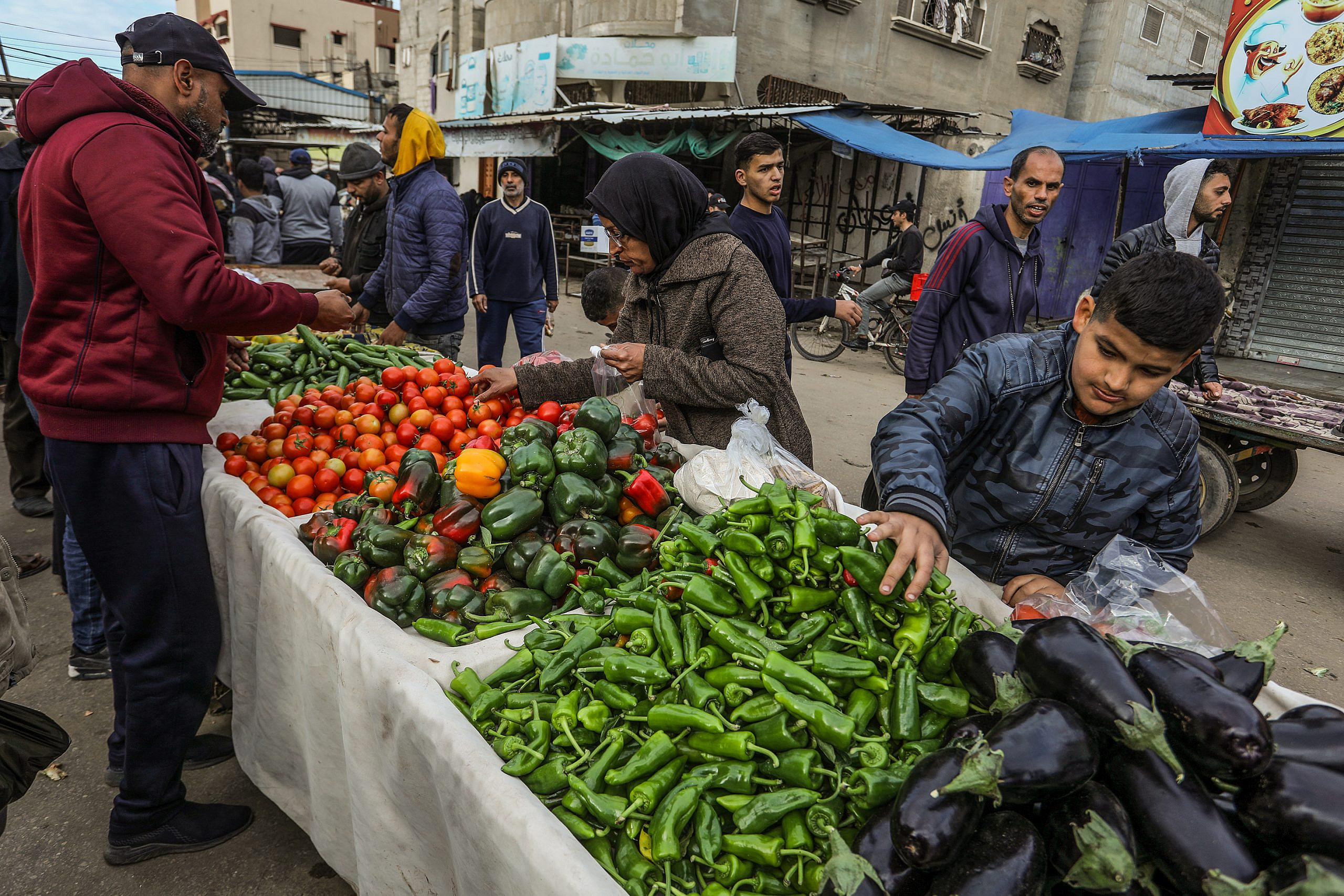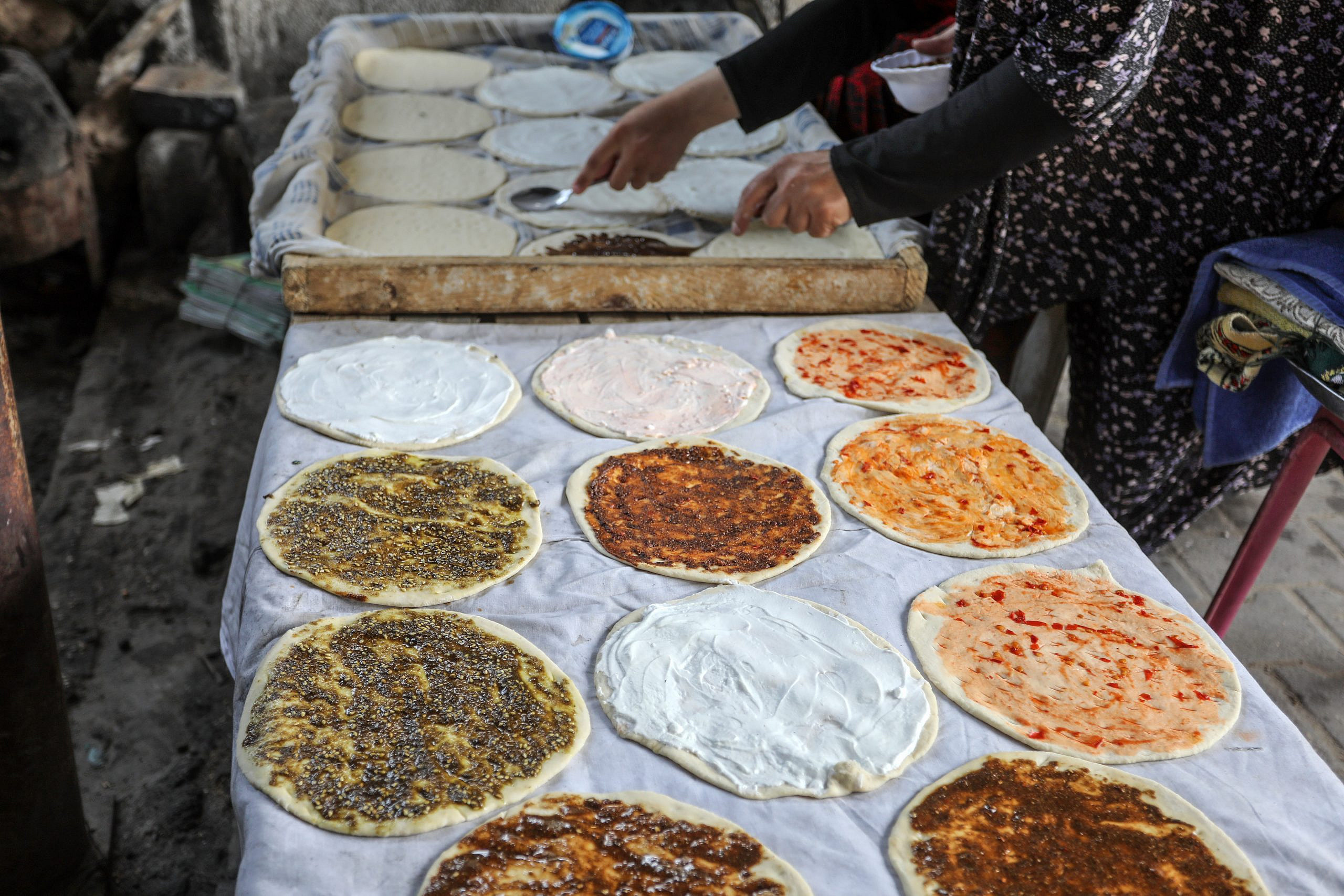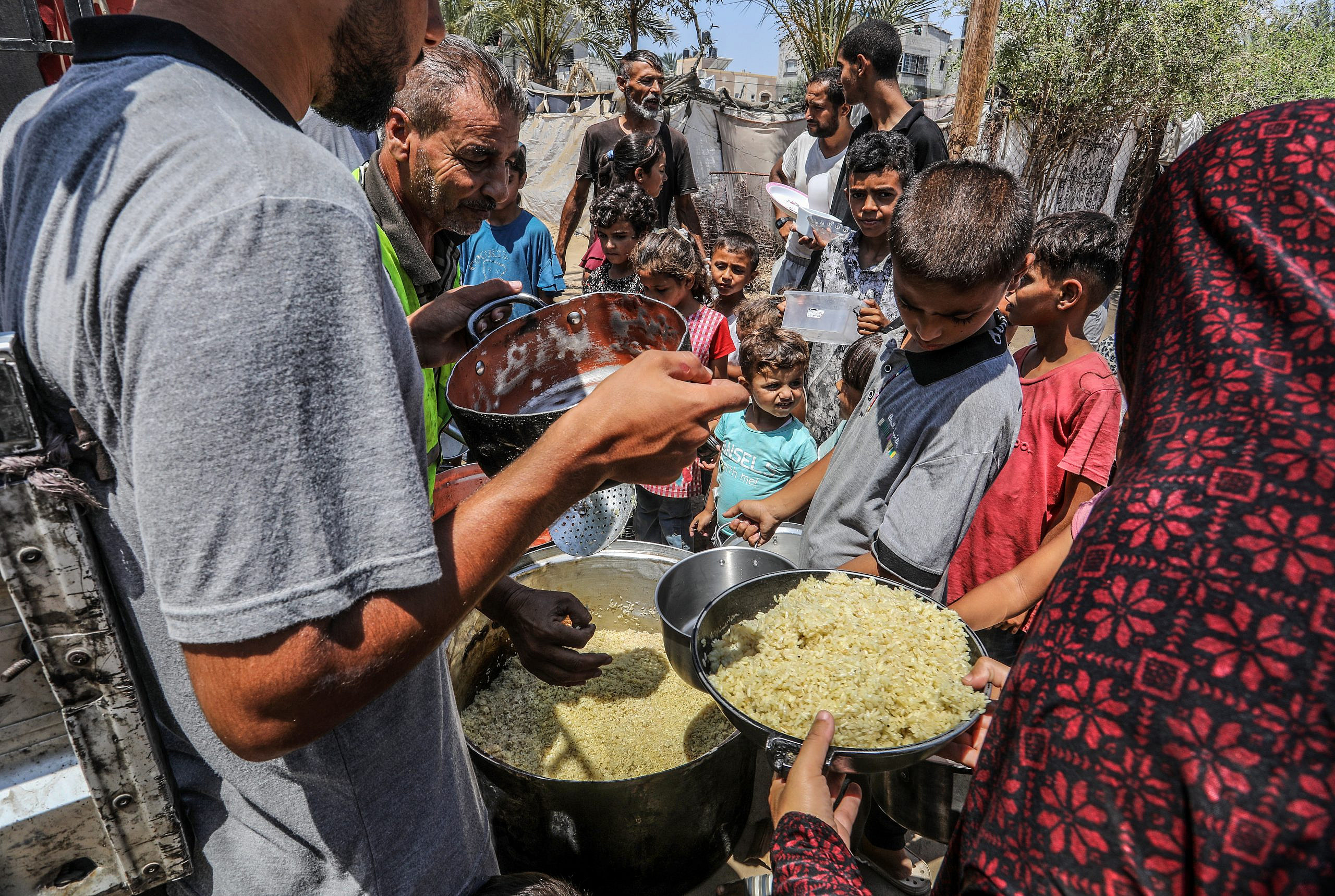The Gaza famine that wasn’t is being used against Israel
The United Nations, the Biden administration and the media continue to assert that Palestinians are enduring mass starvation even after proof emerges that the claim is propaganda.
By Jonathan S. Tobin
JNS
Jun 19, 2024

Part of the accepted narrative about the war in the Gaza Strip is that the Palestinians there are enduring abject hunger. In May, the head of the U.N. World Food Program claimed that there was a “full-blown famine” in northern Gaza. Reports in The New York Times and The Washington Post in recent months have routinely noted that Palestinians are starving. Indeed, the notion that there was a genuine shortage of food in Gaza motivated President Joe Biden to order the U.S. Armed Forces to construct a floating pier and anchor it alongside the Gazan shoreline to facilitate the flow of vital supplies to those in need. On the strength of these allegations, the International Criminal Court has requested warrants for the arrest of both Israeli Prime Minister Benjamin Netanyahu and Defense Minister Yoav Gallant, largely because of the claim that they are committing war crimes by deliberately starving the Palestinians.
But what if there is no famine?
As it turns out, the U.N.’s own Famine Review Committee admitted in a report that the claims about not enough food being sent into Gaza were untrue. What’s more, this allegation, which is at the heart of the equally widespread big lie that Israel is committing genocide against the Palestinians, is a matter of sleight of hand bookkeeping. It seems to be largely based on the fact that the number of trucks that are delivering supplies, which flow into Gaza from Israel to feed the Palestinians every day, were being undercounted with private-sector food trucks not being counted as well as other deliveries. A pertinent fact that should also be pointed out is that before Oct. 7, daily supplies of food, fuel and other material were trucked into Gaza from Israel, which gives the lie to the much-cited accusation that the Jewish state blockaded the Strip. Egypt, however, has continued to close off its border to it.
With a few exceptions, the truth about the current situation isn’t being widely reported. In Commentary, Seth Mandel wrote about the findings of the U.N. report and various analyses that pointed to the faulty data being used to justify claims of a Gaza famine. And in The Jerusalem Post, Seth Frantzman cited the work of two Columbia University professors who analyzed the data and debunked the conventional wisdom about Israel starving the Palestinians.
 Palestinians
shop for fruit and vegetables at a market in Rafah, in the southern
Gaza Strip, on Jan. 13, 2024.
Palestinians
shop for fruit and vegetables at a market in Rafah, in the southern
Gaza Strip, on Jan. 13, 2024.
The food flows into Gaza
All these studies show that if there are food distribution problems in Gaza—and, obviously, an area that is the setting for an ongoing military conflict set off by Hamas’s Oct. 7 attacks on Israel is going to experience disruptions—it is not due to a shortage of food. The amount of items being shipped into Gaza from Israel is, as these studies show, clearly sufficient to feed the people of Gaza.
To note the truth about the famine that isn’t happening should also be placed in the context of an event that is happening. Israel’s efforts to keep aid flowing into the Strip are unprecedented in the history of armed conflict. It is a given that warring powers are not responsible for feeding their enemies, especially people under the control of hostile combatants, as is true for Palestinians who live in Rafah, where the last active Hamas military units are still in control. That is, of course, countries other than the Jewish state.
Under the circumstances, even the United States has acknowledged that few of the supplies that had entered Gaza via the floating pier had reached their intended recipients. The NGOs and so-called human-rights groups blame Israel for inspecting the trucks going into Gaza to try and stop them from being used for supplying Hamas with weapons and other war materials, the primary obstacle to the smooth flow of aid is the Palestinians themselves. But rather than admit that the entire affair has been a scandalous waste of time, money and resources—and illustrates the ill-advised and politically motivated nature of Biden’s decision to involve the United States in this fiasco—the administration continues to prevaricate about the problem. Washington prefers to chide Israel rather than say outright that the idea was a huge mistake.
As Mandel also pointed out, even the Times is burying information that undermines the famine claim inside other articles meant to buttress allegations against Israel. The newspaper wrote that there is no shortage of food in northern Gaza, the very place where it had previously asserted that famine was imminent.
Other reports point to not only the continued flow of aid from Jerusalem but also the fact that food markets are open even in areas in southern Gaza, where the fighting continues.
Hamas is stealing it
To point this out is not to deny that the situation there is extremely difficult. In wartime, food distribution networks are inevitably disrupted. But if Palestinians are suffering, then it’s nothing short of libelous to blame Israel for it. From the start of the war, armed Hamas operatives have hijacked most of the deliveries, meaning that the aid goes to the terrorists and not to the civilians they use as human shields. While media outlets often note that Hamas is accused of stealing the goods, they generally put that down only as an unsubstantiated accusation from Israel and its supporters. Given the admission that the aid that was delivered from the U.S. pier is not getting to Palestinian civilians, there is no other remotely plausible explanation for this failure other than the fact that armed Palestinians are preventing it from being handed out to their compatriots who may need it.
Adding to the problem is a new factor. In addition to Hamas itself commandeering aid shipments, gangs of smugglers—most of which are likely affiliated with the various terrorist movements—have also impeded the effort to feed Palestinians. As The Wall Street Journal reported, cigarette smuggling has become a major part of the reason why shortages exist, as criminals and aid workers who are their accomplices are using the trucks that are supposed to bring in food and fuel for transporting contraband tobacco.

Local and displaced Palestinians prepare and bake food in a traditional clay oven in Deir al-Balah, in the central Gaza Strip, on May 17, 2024.
Then why are so many media outlets, international organizations and the Biden administration still talking about starvation and putting the onus on a single entity for this largely fictional catastrophe?
The answer is obvious. In a war in which much of the world has accepted the canard that Israel is a “settler/colonial” and “apartheid” state against which just about any tactic employed by its enemies is justified, inflating the predicament of Palestinians in Gaza into a famine must be seen as the latest in a long list of falsehoods that have been flung at the Jewish state since Oct. 7.
This is a conflict in which some of the same outlets highlighting the dubious claims of a famine have been eager to discredit the truth about the reality of Hamas terrorism and, in particular, the atrocities, including sexual crimes, committed by Palestinians. Indeed, the members of the same anti-Israel media chorus have faithfully repeated every lie spread by the Hamas propaganda machine, including falsehoods about specific attacks and vastly inflated casualty figures for Palestinian civilians, almost all of whom are alleged to be women and children. So why should they be expected to be truthful about a famine for which little or no proof can be supplied if they were willing to lie about so much else?
As with every other falsehood put forward about Israel’s conduct of the war, the truth—even when belatedly admitted—doesn’t seem to matter. Those dedicated to the proposition that, at best, Israel and Hamas are morally equivalent will always move on to the next spurious charge without ever accounting for their previous misrepresentations and outright falsehoods.
That Israel is judged by double and triple standards applied to no other nation—let alone no other democracy at war—is nothing new.
A 21st-century blood libel
Yet the egregious nature of the Oct. 7 assault and atrocities, as well as the clear justification for Israel’s counter-offensive to eliminate the genocidal terrorist movement that carried out those crimes, seems to have impelled those who hate Israel and Jews to new depths of mendacious reporting. The intersectional left-wingers who are convinced that Israel is a nation of “white” villains victimizing Palestinian “people of color” who are inaccurately analogized to American victims of racial discrimination have no compunction about spreading these smears. The worse the actual behavior of the Palestinians, who are bent on the destruction of Israel and its people, the more it becomes imperative to flip the narrative and accuse Israel of genocide.
 Palestinians
receive a hot meal prepared by volunteers in Deir al-Balah, in the
central Gaza Strip, on June 13, 2024.
Palestinians
receive a hot meal prepared by volunteers in Deir al-Balah, in the
central Gaza Strip, on June 13, 2024.
Every death and all of the privations suffered by Palestinian Arabs since Oct. 7 is the responsibility of the Hamas terrorists who started this war and who take every opportunity to maximize the suffering of their own people to besmirch Israel’s image. That is not only the case for Gazans hurt or killed during the fighting but true for anyone prevented from receiving aid shipped into the Strip with Israel’s permission.
The mythical Gaza famine is just the
latest instance of how the Palestinians are gaslighting the world as
they deliberately spiral further into an abyss of unending conflict in
which they themselves are the primary victims. Sober-minded Americans
who by now ought to have learned better than to trust the corporate
media on this and many other issues should not be influenced by this
propaganda campaign, rooted in the age-old tropes of antisemitism in
which the Jews are always accused of conspiring to harm others. Stripped
of the emotionalism and partisan activism that colors so much of
contemporary journalism, and especially the coverage of the Middle East,
the claim that Israel is starving the Palestinians should be seen for
what it is: a 21st-century blood libel.
No comments:
Post a Comment